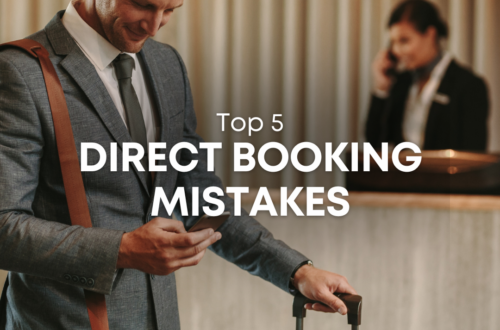OTA Management
-
Top ten questions to ask your OTA market manager
Most hotel team members meet or call their OTA market managers on a regular basis. It is important to keep them on their toes in order to maximize the revenue potential for your property.👉🏼 Can you influence my ranking and how much does it matter?👉🏼 Will the promotion or discount generate incremental revenue?👉🏼 How can I raise volume while keeping the average distribution cost per booking stable?👉🏼 How can I increase or maintain my market share?👉🏼 Will the increased advertising add to my existing commission or margin (distribution) costs?👉🏼 What can I do to reduce unilateral discounts, vouchers, and point-of-sale offers?👉🏼 What am I doing wrong in comparison to my…
-
Five simple ways to boost your hotel’s OTA revenue
Not ranking, but conversion rate - you don't have to be on page one. Improve your conversion rate regardless of which page you are on. Leverage geographic strengths - for example, Booking excels in Europe and the Middle East, whereas Agoda excels in Asia. Expedia is best positioned to bring in business from the United States. Take advantage of this. Room types by channel - for example, Booking outperforms Agoda in driving higher room category bookings. Expedia falls somewhere in the middle. Make up for the cancellation rate - for example, Booking has the highest cancellation rate of all. More than half of all bookings are canceled. Try to get…
-
How do you deal with third-party rates on OTAs?
Most OTAs do not want to give anyone else a pricing advantage. According to their data, it is the most important decision factor. They will pull rates from third parties to make the smallest of margins because accepting one more booking has practically zero additional cost. The hotels can either face them head-on or choose to ignore them. The tactics listed below are ordered from most effective to least effective. Completely discontinue the issuance of wholesale contracts. Only sell dynamic rates, whether through OTA or bed banks. Limit allotments to wholesale partners, including bed banks, to reduce the proportion. Fight with OTAs to cut off third-party inventory. Restriction on wholesale…
-
Five times, promotions on OTAs are working against your property
Most hotels feel like they have to offer deals on OTAs. It is critical to be strategic with these. The promotions are bad for your hotel when No incremental revenue - your overall revenue from that OTA remains flat Revenue disappears when promotion is turned off - you gain no additional momentum. Guests are more difficult to convert to direct channel - you are attracting die-hard OTA customers. Better ROI elsewhere - additional promotion distribution costs are higher than with other OTAs or direct channels. Forgot a long-term promotion - forgotten promotions (on extranets) are often the cause of rate parity problems. I've always said that pricing is more important…
-
OTA Promotions-How to Decide?
OTAs generate a mountain of data. I am not talking about the visitor behavior data on their website. I am talking about what hoteliers do on their extranet. Hoteliers are enticed by the same tactics that allow OTAs to get their website visitors to click on a button, navigate to a different page, or make a booking.Discounting or participating in a campaign is as easy as clicking a button now. A constant stream of competition and market data encourages you to participate in a new campaign or keeps you there. It's no surprise that most hoteliers feel left out if they don't have one of these offers on their OTA listing. How…
-
Are We Still Talking about Rate Parity in 2022?
The Landscape The rate parity situation seems to be worse than before. The technology allows for IP-based or user behaviour-based pricing. An enormous amount of data, pressure to convert and competition mean a lot of coupons and unilateral discounting. Many OTAs have turned into marketplaces where rates can be sourced from third parties. Demand is shifting so quickly that most hotels are finding it difficult to balance online vs offline and short-term vs long-term rates. New players like Lazada, Shoppee, Megatix, Line and Hungryhub selling vouchers have further muddied the waters. Implications The properties serious about rate parity are playing a game of ‘Whack a Mole’. Price anchoring at a lower point adds to the downward pressure. Direct strategy and…





















